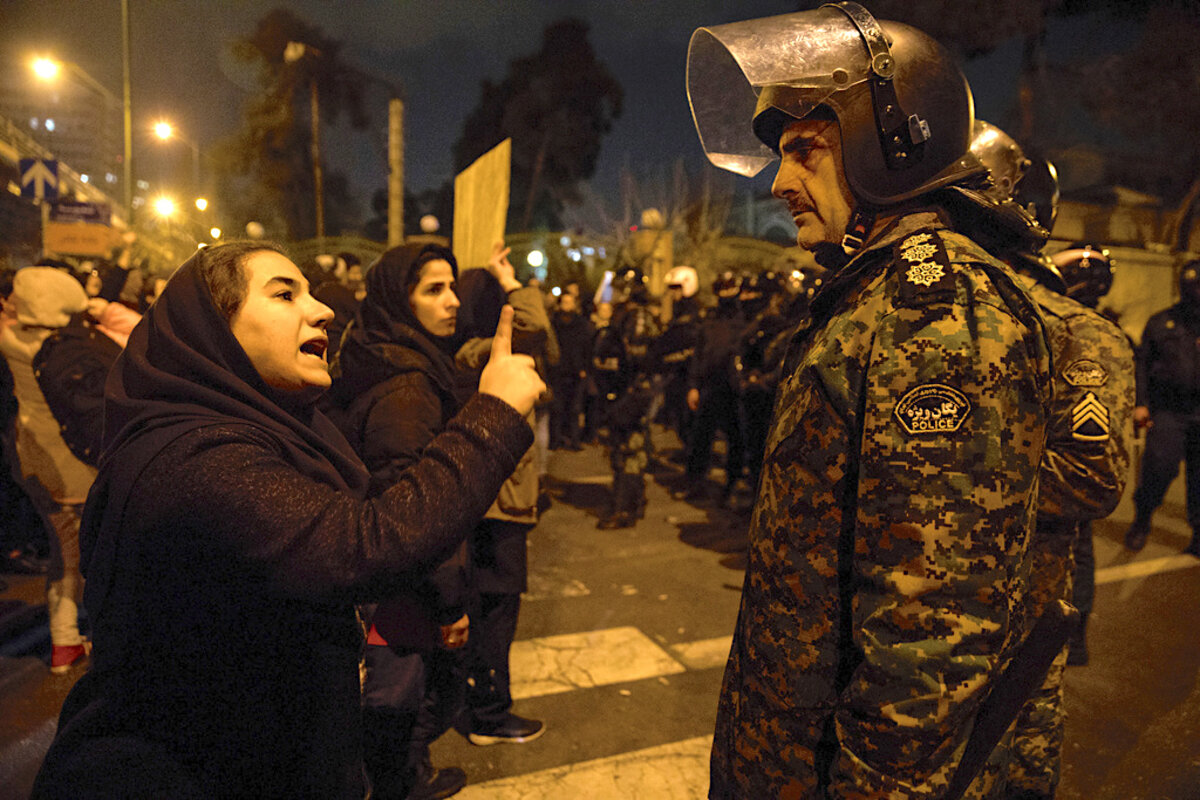Getting what you want politically doesn’t necessarily mean ... getting what you want. Whatever its drawbacks, the Iran nuclear deal gave Israel a breather of sorts. Now its leaders face a grimly familiar predicament, and a ticking clock.
Monitor Daily Podcast
- Follow us:
- Apple Podcasts
- Spotify
- RSS Feed
- Download
 Clayton Collins
Clayton Collins
Today we look at Israel’s Iran dilemma, the fallout of Latin American protests, a city’s reach to save its schools, a deeper take on women’s self-defense, and the joyful noise of fiddlin’. First, we remember a Mideast peacemaker.
When news came Saturday that Oman’s Sultan Qaboos bin Said, the Gulf nation’s ruler since 1970, had died, Monitor editors began trading messages. At a time of great regional polarization, the sultan’s decades of quiet mediation deserve notice.
His passing felt like “the closing chapter to a more civil time,” says the Monitor’s Taylor Luck, who wrote in 2017 about Sultan Qaboos’ importance to the region. In Muscat, Oman, yesterday, Taylor notes, “just for a moment, everything stopped and reverted back to [a time] when respect trumped rivalry, and dialogue overcame differences.”
Recognition came from Saudis and Qataris, from Iranians and Americans. “Warring factions of Yemen’s civil war all stopped to pay tribute,” notes Taylor, “speaking to the sultan’s legacy.
“Qaboos was not a model democrat, but he was a model statesman, working for prosperity for his people and peace for his neighbors,” Taylor wrote in an email from Jordan. “Traveling and living in the region the past 12 years, I heard nothing but kind words for Sultan Qaboos from princes, politicians, farmers, and fishermen.”
The values that may have helped inspire that – trust, respect, empathy – were celebrated in a Monitor editorial in 2018. They have long extended to Oman itself.
“The country’s diplomacy focuses on understanding the interests of other countries rather than trying to maximize its own gains,” read the editorial, quoting an official in Oman’s foreign ministry. “It relies on seeing them as ‘though we were as them, to see the world through their eyes.’ ”










